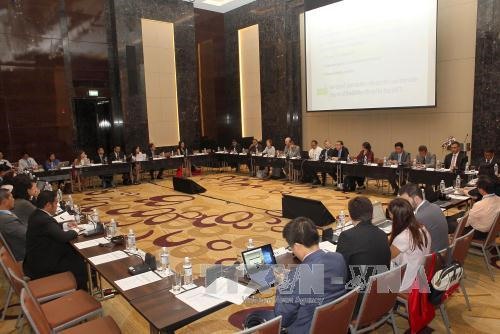 Environment
Environment

As part of the second APEC Senior Officials Meeting (SOM 2) and related meeting, the Committee on Trade and Investment (CTI) hosted a Trade Policy Dialogue (TPD) on Environmental Services in Hà Nội on Thursday.
 |
| Trade Policy Dialogue (TPD) on Environmental Services opens in Hà Nội on Thursday. -- VNA/VNS Photo |
HÀ NỘI — As part of the second APEC Senior Officials Meeting (SOM 2) and related meeting, the Committee on Trade and Investment (CTI) hosted a Trade Policy Dialogue (TPD) on Environmental Services in Hà Nội on Thursday.
The dialogue was designed to provide information about the classification of environmental services, study the combination of environmental products and services and discuss ways for APEC member economies to support each other in speeding up negotiations on environmental services.
At the dialogue, Jehan Sauvage, a Trade Policy Analyst in the Trade and Agriculture Directorate of the Organisation for Economic Co-operation and Development (OECD), shared his expertise about environmental services.
According to him, there are three basic types of environmental services: key environmental services (wastewater treatment, underground water management); environment-related services (consultant and technical services) and other services directly related to the environment (legal and auditing services).
Water resources business was also a topic that gained attention from delegates at the dialogue where they mentioned factors considered as a momentum to enhance creativity and efficiency as well as challenges in this field.
Regarding the limited use of recycled items and disposable products, participants emphasised the importance of circular economic model and ways to reduce the re-use and recycling of items in the daily life. The disposal, treatment and management of waste not only bring benefits to society but also the environment, they noted.
Overcoming the environmental damage was also a type of service debated by the delegates. This sector has faced a number of challenges due to different standards and regulations on the environment in different economies and political institutions.
During the course of the final session, the panels deliberated ways to effectively boost renewable energy business, noting that the sense of efficiency in thinking and action could improve the quality of business and enhance competitiveness in the market.
Legal challenges are likely to hinder development of the renewable energy sector and they should be removed as soon as possible, they said. — VNS




